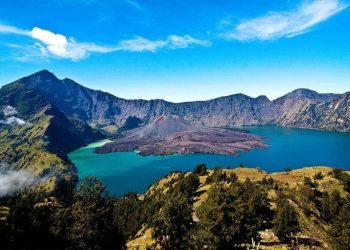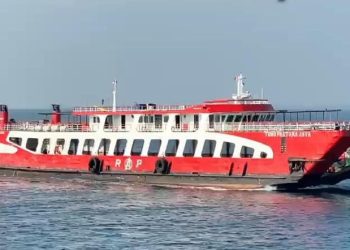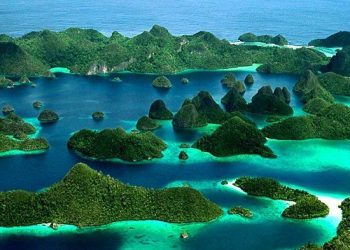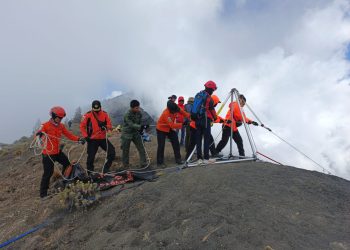Jakarta, Indonesia Sentinel — The Banten Representative Office of the Indonesian Ombudsman has urged the central Ombudsman and the government to review the National Strategic Project (PSN) of Pantai Indah Kapuk (PIK) 2.
The request comes following the controversy surrounding a mysterious 30-kilometer-long sea fence in Tangerang Regency. Fadli Afriadi, head of the Banten Ombudsman, stated that the sea barrier is located in five out of six districts within the PIK 2 PSN area.
“The PSN, the sea fence, and PIK are interconnected issues that have become entangled,” Fadli said at a press conference at the Indonesian Ombudsman office in Jakarta on Monday (February 3) as reported by CNN Indonesia.
“We are advocating for an evaluation of the PSN, particularly regarding the clarity of information. Even now, the exact location of the fence remains a topic of debate. From the beginning, the main question has been whether this sea fence is part of the PSN or not?” he added.
The proposal has been submitted to the Indonesian Ombudsman. Yeka Hendra Fatika, a member of the Ombudsman, stated that the agency will hold a plenary meeting to address the matter.
He indicated that the central Ombudsman might launch a further investigation, depending on the outcome of the meeting. “Whether this leads to a full-scale investigation by the central Ombudsman will be decided in the next one to two weeks, as it must go through a leadership plenary session,” Yeka said.
PIK 2 Project
The PIK 2 project has come under increasing scrutiny due to alleged violations, including zoning issues, the sea barrier construction, and building rights (HGB). The project is linked to Indonesian property tycoon Sugianto Kusuma, also known as Aguan.
The PIK 2 PSN gained national attention after the emergence of the 30-kilometer sea fence in early January 2025. Two companies holding building rights (SHGB) certificates over the structure are affiliated with the business group managing PIK 2.
The two companies, PT Cahaya Inti Sentosa (CISN) and PT Intan Agung Makmur, are both tied to the Agung Sedayu Group, which oversees the PIK 2 project.
According to CNN Indonesia, CISN is a subsidiary of PT Pantai Indah Kapuk Dua Tbk (PIK 2), a publicly listed property company under Agung Sedayu Group. Meanwhile, PT Intan Agung Makmur is also linked to the conglomerate, with its board of directors and commissioners comprising close associates of Aguan.
National Strategic Project (PSN) Evaluations
According to Tirto, the Committee for the Acceleration of Priority Infrastructure Provision (KPPIP) is currently assessing the PIK 2 PSN, which is managed by the Agung Sedayu Group, Aguan’s real estate empire. The evaluation involves follow-ups with all relevant ministries and technical agencies that have submitted proposals or recommendations.
Coordinating Minister for Economic Affairs Airlangga Hartarto has previously announced that the government would review all PSNs, including the PIK 2 development in Banten.
Read Also:
Meanwhile, the Ministry of Tourism (Kemenpar) which also weighed in on the review of the PSN project, developed by PT Pantai Indah Kapuk Dua Tbk. (PANI) or PIK 2, has also responded to the evaluations.
Hariyanto, Deputy Minister for Tourism and Infrastructure Development, stated that Kemenpar is awaiting an invitation from the Coordinating Ministry for Economic Affairs (Kemenko Perekonomian) to discuss PIK 2’s status as a PSN.
“We are waiting for a coordination meeting organized by Coordinating Minister for Economic Affairs, and we will assess the results of that meeting,” Hariyanto said when approached by Bisnis at the Indonesian House of Representatives (DPR) building in Senayan, Jakarta, on Monday, February 3, 2025, as reported by Bisnis.
Hariyanto clarified that Kemenpar’s role was limited to providing recommendations within the tourism sector. He emphasized that the ministry does not issue regulations or conduct evaluations for PSNs.
The fate of the PSN PIK 2 project now hinges on the ongoing evaluations by government agencies and the Ombudsman. As authorities scrutinize potential legal and regulatory violations, the outcome could set a precedent for future large-scale developments in Indonesia.
(Raidi/Agung)


























